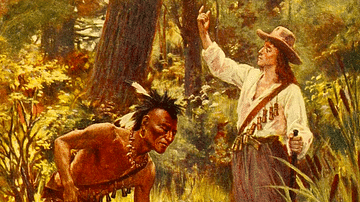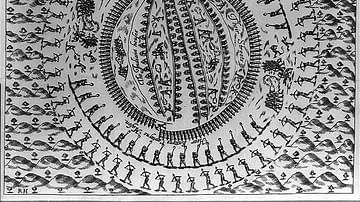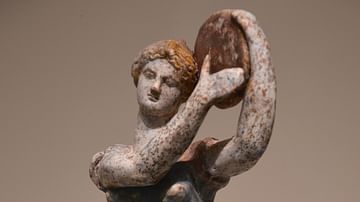Search Definitions
Browse Content (p. 106)

Definition
Hallstatt Culture
The Hallstatt culture is named after the site of that name in Austria and it flourished in central Europe from the 8th to 6th century BCE. The full period of its presence extends from c. 1200 to c. 450 BCE - from the Late Bronze Age to the...

Definition
Weetamoo
Weetamoo (l. c. 1635-1676, also known as Namumpum, Tatapuanunum, Wattimore, Weetthao) was a female chief of the Pocasset Wampanoag tribe as well as a War Chief in King Philip's War (1675-1678), during which she established herself as a great...

Definition
Medieval Icelandic Government
Early medieval Icelandic government, or Viking Iceland, has been termed an incipient form of democracy or democratic parliamentarism, however, the system was actually nothing like its European counterparts, be they medieval or contemporary...

Definition
Matilda of Tuscany
Matilda of Canossa (c. 1046-1115), the Countess of Tuscany (r. 1055-1115) and Vice-Queen of Italy (r. 1111-1115), was the final head of the noble House of Canossa following the deaths of her father in 1052 and her elder brother in 1055. One...

Definition
Ancient Celtic Religion
The polytheistic religion of the ancient Celts in Iron Age Europe remains obscure for lack of written records, but archaeology and accounts by classical authors help us to piece together a number of the key gods, sacred sites, and cult practices...

Definition
King Philip (Metacom)
Metacomet (also known as King Philip and Metacom, l. 1638-1676) was chief of the Wampanoag Confederacy between 1662-1676, best known as the leader of Native American forces during the conflict known as King Philip’s War (1675-1678) during...

Definition
King Philip's War
King Philip’s War (also known as Metacom’s War, 1675-1678) was a conflict in New England between a coalition of Native American tribes organized under the command of Metacom (also known as King Philip, l. 1638-1676), chief of the Wampanoag...

Definition
Scythians
The Scythians were a nomadic people whose culture flourished between the 7th and 3rd century BCE in a territory ranging from Thrace in the west, across the steppe of Central Asia, to the Altai Mountains of Mongolia in the east. This covers...

Definition
Mystic Massacre of 1637
The Mystic Massacre of 1637 (also known as the Pequot Massacre) was the pivotal event of the Pequot War (1636-1638) in New England fought between the English (along with their Native American allies the Mohegan and Narragansett tribes) and...

Definition
Tympanon
The tympanon (tympanum in Latin) was the most popular frame-drum in ancient Greek music, producing a loud rumbling sound not far from the sound of the orchestral timpani drums today. This percussion instrument was played mainly by women on...